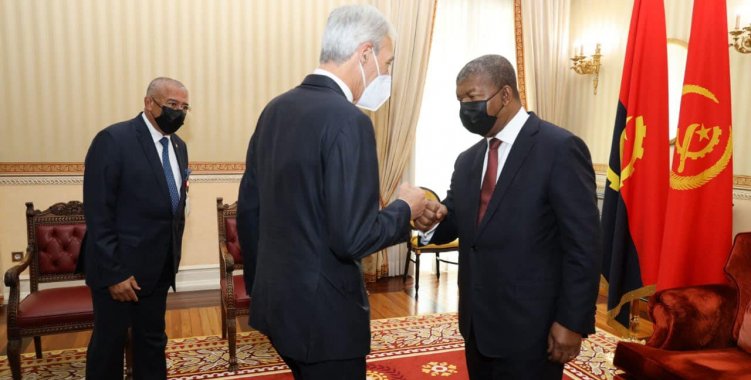João Gomes Cravinho was speaking at the Presidential Palace in Luanda, after an audience with the President, João Lourenço, and underlined to journalists the "strong will and commitment" to the constant improvement of the relationship between the two countries, which is "excellent in all plans" and "allows you to have an increased level of ambition".
The conversation focused on strengthening investment and economic activity by Portuguese companies in Angola, whether in traditional areas, such as construction, or in others such as tourism, energy and agriculture, "where Angola has tremendous potential", he explained.
The head of Portuguese diplomacy said that the current framework, in which countries are trying to recover from the pandemic and are also being faced with an economic crisis resulting from Russia's invasion of Ukraine, advises "every effort to intensify the relationship".
The relationship is also favored by the fact that it has been possible to overcome, in recent years, some problems such as the payment of debts owed by the Angolan state to Portuguese companies.
"Most of them have already been paid," he said.
João Gomes Cravinho also praised the "intense effort" of the Angolan government to improve the country's economic conditions, which has been recognized by international rating agencies and the International Monetary Fund.
"This creates a good business environment and there are favorable circumstances for this intensification", he stressed.
The minister handed João Lourenço a letter from the prime minister, António Costa, in which he underlines his commitment to this relationship without going into further details.
Another topic addressed was the granting of visas, with João Gomes Cravinho expressing Portugal's desire to improve in this area.
"The situation is already improving since the signing of the visa facilitation protocol, the numbers show that there is greater agility, but, of course, there are improvements to be made and one of the objectives of my visit is to find out about the problems regarding the granting visas and identifying solutions. It is one of the issues that must be improved so that the economic relationship is as fruitful as possible", declared the minister.
As for the issue of elections in Angola, scheduled for August, the diplomat explained that the issue was not addressed.
"Elections are a fact of democratic life in countries, we had elections recently too, but this was not an issue. We know that, whatever happens with the elections, (will not affect) the relationship between Portugal and Angola (which) is based on deep mutual knowledge and intense interaction between our peoples", he underlined.
The head of Portuguese diplomacy and the head of the executive also exchanged views on the situation caused by the Russian invasion of Ukraine, which he considered "very worrying".
"We shared our points of view and the way we look at this conflict", said Gomes Cravinho, stressing that each country is "sovereign" and each has its perspectives, when asked about the different position of Angola and Portugal on the situation.
He noted, however, that there is "great convergence on the absolute need, in the shortest possible time, to find solutions that lead to the cessation of hostilities."
Angola again abstained last week in a United Nations resolution that led to Russia's suspension from the Human Rights Council.
Of the Portuguese-speaking countries, only Portugal and Timor-Leste voted in favor and the votes of São Tomé and Príncipe and Equatorial Guinea were not registered, according to the voting score presented at the General Assembly.
Most countries that voted against or abstained argued that the resolution had a political bias and that "human rights should not be politicized".







